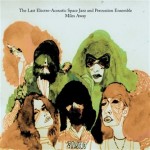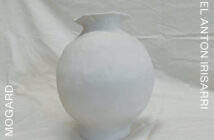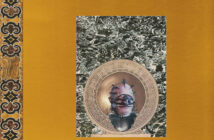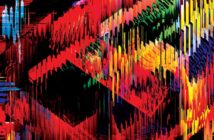
LA producer Madlib dropped his first Yesterday’s New Quintet 12″s and the follow-up LP, Angles Without Edges, back in 2001. This LP was apparently culled from dozens of tracks Madlib had knocked off in his studio, with Peanut Butter Wolf given the task of identifying the highlights. Assuming various aliases, Madlib jettisoned the sampling approach of his other hip hop productions and played a variety of instruments himself. The resulting tracks were beautifully raw and naive interpretations of some of his favourite jazz influences – sometimes in the form of covers like Ramsey Lewis’s ‘Sun Goddess’, other times in the form of original pieces.
Since then, Yesterday’s New Quintet has officially ‘broken up’. What is actually means is that Madlib has released a series of Stones Throw releases under a variety of aliases in what he now calls ‘Yesterday’s Universe’. For me, not all of them have reached the heights of that first LP. By my count, he has released at least a dozen EPs and 4 LPs as part of Yesterday’s Universe in the last five years alone – and this is only a fraction of his total output in that period. Clearly, Madlib’s method is quick and dirty – and while this method is a crucial element in his characteristic blunted aesthetic, it also means that some of his output just sounds half-finished.
The latest Yesterday’s Universe offering feels more fully-formed and satisfying. Miles Away is credited to The Last Electro-Acoustic Space Jazz and Percussion Ensemble. Madlib is clearly on mission on this album. While he has shared some of his jazz influences by name-checking them on Quasimoto’s ‘Jazz Cats’, he’s even more direct here. Each track is dedicated to a musician associated with the transitional moment in jazz during the late 60s and early 70s, including familar icons Roy Ayers, Pharoah Sanders and John Coltrane and others like Horace Tapscott, Harry Whitaker, Derf Recklaw, and Dwight Tribble. Oddly, given the title of the LP, there are no tracks explicitly devoted to Miles Davis (although ‘Bitches Brew’ was covered on a previous EP). The vinyl version of the album is produced in glorious gatefold, with evocative artwork on the cover and the inner sleve. He’s both situating the album in a period and a style, and providing a field guide for those who might want to conduct their own explorations of that period and style.
With this ‘Ensemble’, Madlib is exploring what he can achieve with the sonic palette available to the jazz musicians he namechecks: swirling around with the drums, bass and electric/acoustic keys are vibes, flutes, sitars, and harps and an expanded range of percussion. As usual, each of the instruments is credited to one of his many aliases. On most of the tracks, he invents the kinds of modal piano passages, bass riffs and snippets of melody that he might otherwise have sampled for a beat or mixtape, and then he extrapolates on their possibilities and directions … sometimes for 30 seconds, sometimes for several minutes. In the best of these extrapolations, he captures the dimensions of the jazz he loves which aren’t all about individual virtuosity. He’s more focused on intensity, atmosphere, risk and exploration.
Madlib’s drumming style is central to the aesthetic he creates on this release. Surprisingly, given his roots in the world of hip hop, the drums are denied their conventional role as anchor. His drumming is raucus and just plain sloppy, played over the top of the grooves rather than locking them down. This creates a kind of tension, as brief head-nodding moments typically give way to a cacophony which invites you to close your eyes and sway rather than snap your neck.
Miles Away is further proof that among his many other talents, Madlib has opened up a new direction in the on-going dialogue between hip hop and jazz. But in some ways, it’s hard to know how much further he can push this direction while he continues to work only with his own alter-egos and not with other musicians. Part of the appeal of this music is that it is not cluttered with competing egos fighting to demonstrate their instrumental virtuosity through individual solos. And yet, ultimately the album lacks those elements of intensity, surprise and unpredictability that the great jazz ensembles have produced precisely because of the diversity of their participants.
Kurt Iveson



